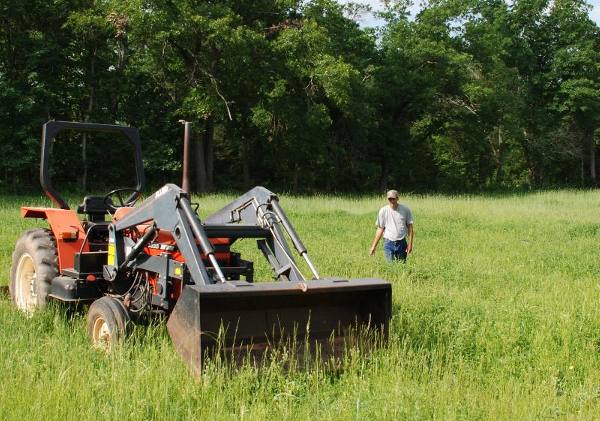
Options available for reducing impact on wildlife during hay harvest.Walk out their fields or use a flusher bar on farming equipment before cutting hay to help flush nesting or bedded down wildlife from the area.Every year farmers call in to report having hit a fawn during the hay cutting process.
April 30, 2012

A long and mild spring is producing healthy, early hay crops for landowners this year, and biologists with the Oklahoma Department of Wildlife Conservation are encouraging them to walk out their fields or use a flusher bar on farming equipment before cutting hay to help flush nesting or bedded down wildlife from the area.
"This has been a great season for vegetative growth, which is what wildlife need after last year's horrible drought," said Mike Sams, private lands senior biologist for the Wildlife Department. "And it's what farmers needed as well. But every year we have farmers call in to report having hit a fawn during the hay cutting process. So this year, we're reminding farmers early to take a few precautions."
Sams works with landowners across the state who are interested in improving wildlife habitat on their property. Some of them are farmers, and Sams says something as simple as walking out their fields before going back over them with heavy equipment could encourage any wildlife in the area to leave.
"Nobody wants to accidentally kill or injure an animal during the farming process, and these simple steps can help avoid it," Sams said.
In Oklahoma, most hens are nesting this time of year, and most fawns are born in May and June. Log on to wildlifedepartment.comfor more information about wildlife conservation in Oklahoma. See the Oklahoma Cooperative Extension Service's fact sheet at: http://pods.dasnr.okstate.edu/docushare/dsweb/Get/Document-2696/NREM-5006web.pdf for more information about reducing the mortality of grassland wildlife during hay and wheat harvesting. To reach Mike Sams, call (405) 590-2584.
You May Also Like



